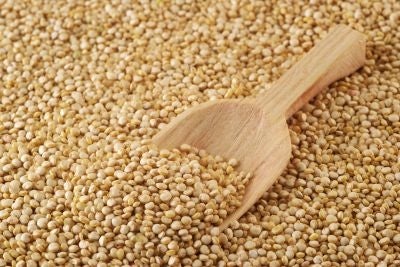Study finds cereal is much older than we thought

Starting the day right by eating a bowl of cereal in the morning dates back more than 100,000 years, according to Canadian researchers in a study to be released Friday.
"The consumption of wild cereals among prehistoric hunters and gatherers appears to be far more ancient than previously thought," said study author Julio Mercader.
Indeed, scientific evidence until now showed the practice started only 12,000 years ago at the closing stages of the last Ice Age.
Mercader said in his study he found the oldest example of early man's extensive consumption of cereal and root staples in a deep limestone cave near Lake Niassa in Mozambique.
The University of Calgary archeologist recovered dozens of stone tools, animal bones and plant remains dating back more than 100,000 years ago.
Thousands of starch grains on excavated plant grinders and scrapers showed that wild sorghum - the ancestor of the chief cereal consumed today in sub-Saharan Africa for flours, breads, porridges and alcoholic beverages - was brought to the cave and processed systematically, said the study.
"This happened during the Middle Stone Age, a time when the collecting of wild grains has conventionally been perceived as an irrelevant activity and not as important as that of roots, fruits and nuts," Mercader said.
"The inclusion of cereals in our diet is considered an important step in human evolution because of the technical complexity and the culinary manipulation that are required to turn grains into staples," he commented.
This discovery "broadens the timeline for the use of grass seeds by our species, and is proof of an expanded and sophisticated diet much earlier than we believed."
The findings are detailed in the December 18 issue of the research journal Science.
Join our commenting forum
Join thought-provoking conversations, follow other Independent readers and see their replies
Comments
Bookmark popover
Removed from bookmarks